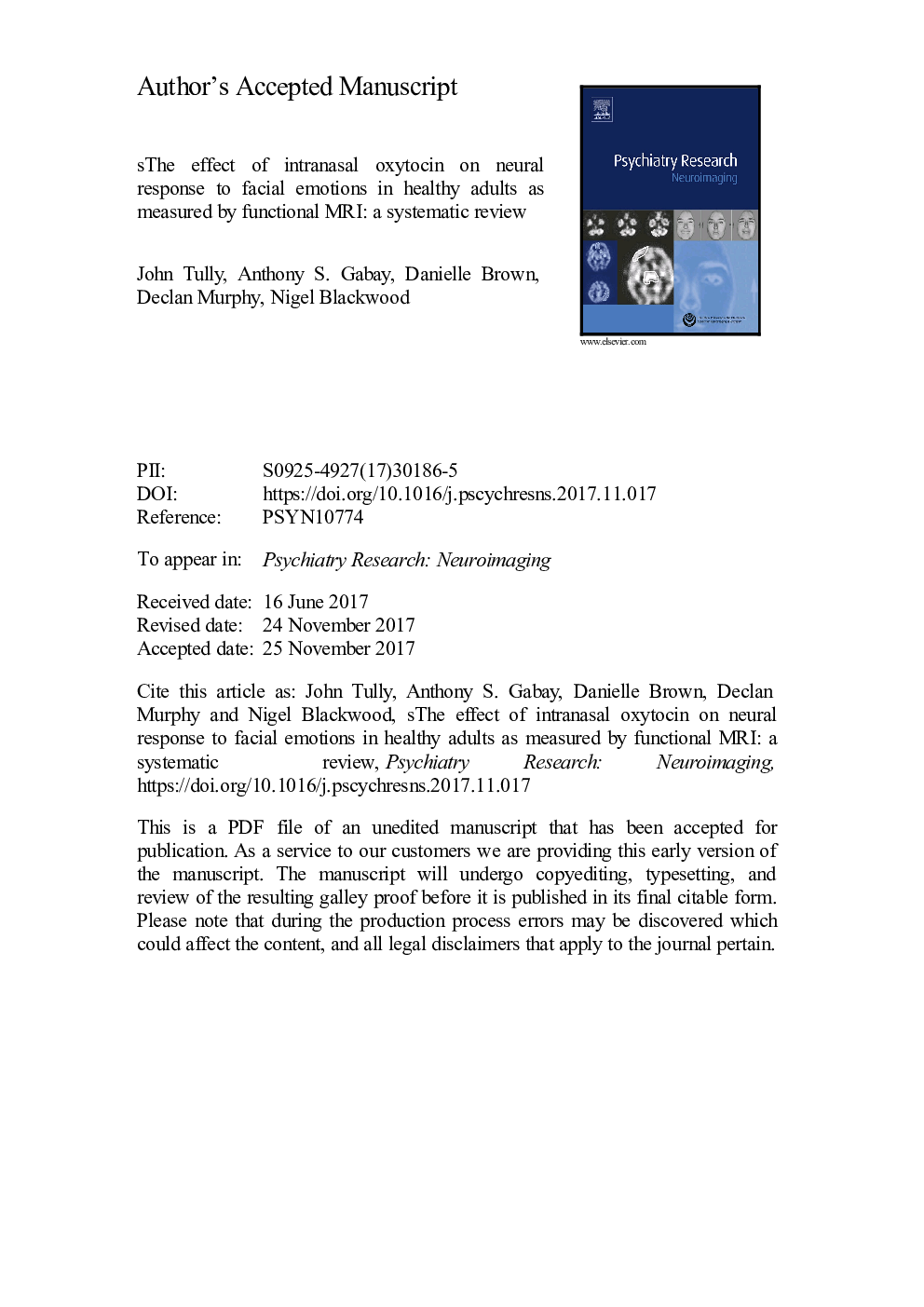| Article ID | Journal | Published Year | Pages | File Type |
|---|---|---|---|---|
| 6816949 | Psychiatry Research: Neuroimaging | 2018 | 36 Pages |
Abstract
Abnormalities in responses to human facial emotions are associated with a range of psychiatric disorders. Addressing these abnormalities may therefore have significant clinical applications. Previous meta-analyses have demonstrated effects of the neuropeptide oxytocin on behavioural response to facial emotions, and effects on brain, as measured by functional MRI. Evidence suggests that these effects may be mediated by sex and the role of eye gaze. However, the specific effect of oxytocin on brain response to facial emotions in healthy adults has not been systematically analysed. To address this question, this further systematic review was conducted. Twenty-two studies met our inclusion criteria. In men, oxytocin consistently attenuated brain activity in response to negative emotional faces, particularly fear, compared with placebo, while in women, oxytocin enhanced activity. Brain regions consistently involved included the amygdala, fusiform gyrus and anterior cingulate cortex. In some studies, oxytocin increased fixation changes towards the eyes with enhanced amygdala and/or fusiform gyrus activation. By enhancing understanding of emotion processing in healthy subjects, these pharmacoimaging studies provide a theoretical basis for studying deficits in clinical populations. However, progress to date has been limited by low statistical power, methodological heterogeneity, and a lack of multimodal studies.
Keywords
Related Topics
Life Sciences
Neuroscience
Biological Psychiatry
Authors
John Tully, Anthony S. Gabay, Danielle Brown, Declan G.M. Murphy, Nigel Blackwood,
